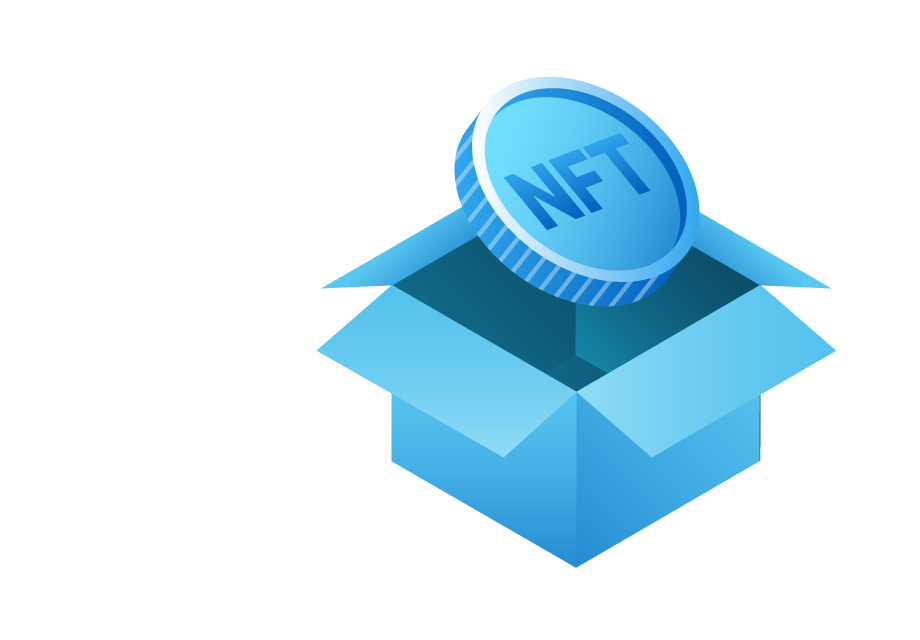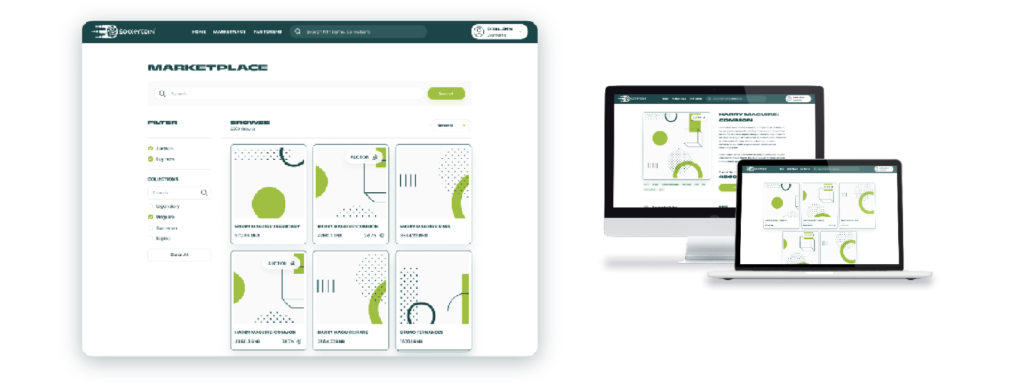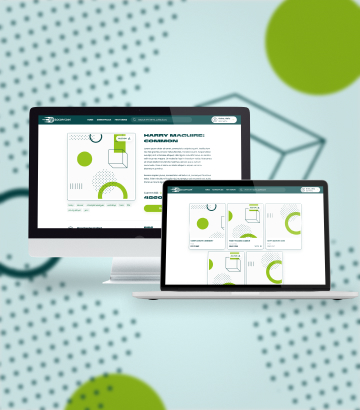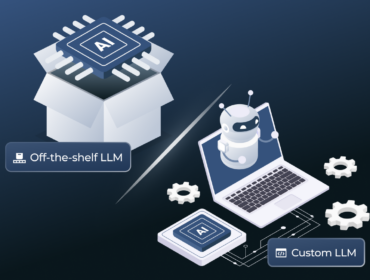Last spring, the world’s first-ever NFT flight ticket was sold at a live auction for a whopping one million dollars. Except for being a work of art and a first-of-its-kind item, it was a regular boarding pass for a flight to Miami Beach. So what’s the hype?
As Web3 evolves and actively penetrates almost all business spheres, the ticketing industry is no longer an exception. Why? The event ticket market already has high adoption rates and is expected to show revenue growth of 17.1% in 2023. However, potential growth stoppers include fake, duplicate ticket sales and secondary market speculation. In addition, Web2 tickets offer holders nothing more than a boring pass to the event.
NFT ticketing can be a game-changer, leaving no space for fraud and speculation. It can help ticketing companies increase revenue and gain a competitive advantage by building better engagement with ticket buyers. No wonder some of the market’s thought leaders are pretty optimistic and expect the NFT ticketing market to reach 25% of the total ticketing market by 2027. The NFT ticketing market has just started to evolve, so there’s still a chance to be the market leader.
What is an NFT ticket?
An NFT ticket is a one-of-a-kind digital token containing a person’s access credentials and perks, provided by the event organizer and stored on the blockchain. Like a traditional or Web2 ticket, an NFT ticket serves to authenticate its owner through a QR code or near-field communication (NFC) technology and grants them access to the event venue.
Yet, unlike regular tickets, NFT tickets act based on predefined rules empowered by smart contracts. For instance, smart contracts can set a maximum resale price or even forbid resale and control royalty splits. In addition, event holders can combine NFT tickets with personalized audio or video recordings and original digital signatures of event presenters, creatives, and others associated with the event, which can serve as valuable collectibles.
Unsurprisingly, NFT tickets are well-positioned to take over and handle challenges associated with legacy ticketing. Especially in light of the growing popularity of collectible trading and the increasing importance of decentralized finance (DeFi), altogether bringing about an increase in NFT market size. First estimated at $232 million in 2020, it made a giant leap to $22 billion in 2021. If the tendency presumes, we’ll witness a triple boost for this market by 2031. So let’s look at their benefits which only add to the broader adoption of NFT for ticketing purposes.
NFTs can solve traditional ticketing system challenges

Lack of visibility, counterfeiting, and interoperability are among the top challenges faced by Web2 ticketing systems. In addition, inefficiencies like tickets pre-coded with a specific buyer’s name can impede reselling or gifting a ticket if, for example, the owner can’t attend an event.
NFTs represent a promising technology to solve some common woes of traditional event ticketing.
Ticket production
Producing and distributing traditional physical tickets eats up lots of time and resources. Creating, minting, and selling NFTs is much faster and less laborious. Moreover, issuing tickets as NFTs removes mediators like printing houses and box offices and lets organizers take care of production and distribution posthaste.
Resale, scalping, and bots
Of all tickets sold online, automated software and bots purchase a great deal of them and resell them to fans at extreme markups exceeding the original price. An NFT ticketing system, aided by a smart contract, allows organizers to set a price ceiling for NFT ticket resale, thereby limiting profits in the secondary market. Also, smart contracts can thwart bots by establishing strong identity checks and limiting how many tickets individuals can purchase.
Data сollection
Reselling tickets prevents event organizers from collecting data on ticket attribution. NFT uses blockchain technology to tackle that challenge by tracking an immutable timeline of all ticket transactions. This provides event organizers with an accurate sales statistics.
Ticket forgery
According to Action Fraud, the UK national reporting center for fraud and cybercrime, during the 2021–2022 fiscal year, sellers scammed 4,982 fans out of almost £4 million by selling them fraudulent tickets.
NFT ticketing prevents fraudulent ticket sales by keeping all transactions on blockchain ledgers. And as mentioned earlier, event organizers can forbid ticket resale by developing nontransferable NFTs (i.e., make them available only for direct sale).
Ticket loss or damage
Traditional paper-based tickets may serve as highly valued souvenirs, but at the same time, because they’re tangible, buyers can easily lose or damage them. In that case, aside from a missing souvenir, the buyer may not even be able to attend the anticipated event. NFT tickets have a minuscule chance of being misplaced, stolen, or damaged (unless you lose your device and all your passwords!).
As you can see, NFT tickets have superpowers that can improve the entire event-ticketing industry. Let’s see how they work.
Behind the scenes of NFT ticketing
It all starts with the selection of the blockchain platform. Hopefully, the market offers a plethora of options. For now, though, Ethereum, Bitcoin, and Polygon blockchains can already boast successful use cases (which we’ll cover later in this article).
Here’re the main elements of NFT ticketing.

Ticket issuing
Minting is the first step in issuing tickets as NFTs. Ethereum blockchain, for instance, offers a relatively new ERC-1155 standard that lets event organizers mint dynamic NFTs. These NFTs can change over time based on conditions programmed into their smart contract.
For instance, ERC-1155 dynamic NFTs can transition from being a fungible token before the event to a collectible NFT (which can no longer be traded) after the event. Such mechanics let tokens remain in the ticket holder’s wallet as a precious memento and also prevent fraudsters from selling expired tickets.
Event organizers can mint the required number of tickets and code specific parameters such as dynamic or set pricing, revenue sharing, reselling options, etc.
Buying and selling
Event organizers can use their proprietary platform or an existing NFT marketplace like OpenSea to sell their tickets. The ticketing company must also perform an InterPlanetary File System (IPFS) upload of the ticket. Once IPFS calculates the hash, it stores the tickets in a database.
When a buyer pays for a ticket, it triggers a smart contract, resulting in the transfer of an NFT ticket to the buyer’s wallet. There, they can access it anytime from any device through an internet-connected app. Ticket owners can also resell their tickets (if the smart contract doesn’t restrict resale).
Ticket verification
Traditional Web2 ticketing systems use QR codes and barcodes to verify the legitimacy of tickets. NFT ticketing is similar, but there’s a twist.
NFT ticketing solutions can offer dynamically generated QR codes that expire after several seconds each time the ticket holder opens their wallet and taps their ticket. Seatlab has already implemented this mechanism successfully in a ticketing platform.
Another option is to use NFC technology, which lets ticket holders place their phones near a contactless NFC terminal and verify the transaction with a fingerprint or facial recognition scanner. This option lets the event team quickly process many attendees in seconds.
But NFTs can do much more than just tackle ticketing industry problems. Unlike traditional or Web2 tickets, NFTs let event organizers easily engage ticket holders by granting them access to exclusive fan clubs or offering additional bonuses.
Benefits of NFT ticketing

In addition to being faster and more lucrative than traditional tickets, NFTs have much to offer event organizers. Some benefits to mention:
- Royalties. Event organizers can get a piece of the profit when a ticket owner resells their NFT ticket. And when the event is over, ticket owners can turn their tickets into valuable collectibles and sell them.
- Loyalty. Issuing NFT tickets lets you enhance your live event and establish a closer relationship with fans. You can grant buyers access to future releases, online shows, merchandise, and even digital artwork. A good example is Coinbase, which integrated NFT merchandise into the Governors Ball Music Festival in New York. Every day of the festival, limited-edition NFT ticket holders received free merch in the form of NFTs.
- Community. NFT tickets can increase community engagement — they represent both an investment and a membership to an exclusive club of owners. A good example is VeeFriends, where tokens grant access to an online community and a three-year pass to VeeCon, an annual business event. Today, VeeFriends boasts the largest NFT Discord community listing 350,000 members.
- New revenue streams. NFTs have the power to expand product offerings and target specific markets. For instance, Coachella Valley and Arts Festival received tremendous income by selling ten lifetime NFT tickets for $1.5 million (equivalent to 3,500 of their regular tickets).
- More control. Blockchain networks make it simple to authenticate NFT tickets and verify owners. They reduce the incidence of counterfeit ticket distribution and give event organizers more control over primary and secondary market ticket sales.
- Statistics. NFT ticketing gives event organizers access to a wide range of sale and resale data that they can use to improve the process and offerings for subsequent events.
Ticket holders also benefit when they buy NFT tickets. Here’s what they get.
- More freedom. NFT ticketing makes it easy to resell tickets for upcoming events you can’t attend or sell your rare tickets as collectibles. You don’t need to look for other channels but can put them for sale directly on the NFT ticketing platform where you bought them.
- Perks. Ticket holders can enjoy built-in rewards and additional incentives from event organizers as a part of their NFT ticket. These could be access to closed communities, built-in artist signatures, or some NFT merchandise. They can also resell gifted NFT merchandise to earn money.
- Keepsakes. Just like old-school paper tickets, NFTs might serve as mementos and remind you of your precious memories. No regular QR code ticket is likely to be capable of that.
- Safe storage. Traditional tickets can be lost, digital tickets can be corrupted, but NFT tickets will always remain in your digital wallet. The only way to lose them is to forget your login credentials.
With the benefits NFT ticketing can bring to event organizers, artists, and ticket holders, it’s no wonder the practice is moving into high gear. Existing use cases have already demonstrated the success of this technology.

Industries that successfully embraced NFT ticketing
NFT ticketing outperforms traditional and Web2 ticketing, with small and large companies popping up across ticket-dependent spheres. Below, we describe the pioneering industries and some thriving companies that offer NFT ticketing in 2022.

Music and entertainment industry
Live music concerts and events are where the majority of well-known NFT ticketing use cases strive. No surprise since the music industry is the one that suffers scalping and ticket forgery the most, let alone the case with Ticketmaster and Tailor Swift ticket scandal. NFT ticketing can put an end to exorbitant resale prices and massive buyouts. In addition to providing more secure ways to issue, store, sell and verify tickets, NFT ticketing can increase fan engagement and loyalty.
Here are the companies zeroing in on this industry.
YellowHeart
Yellowheart is one of the largest blockchain-based ticketing platforms. It leverages Web3 tools to provide positive experiences and perks for fans, venues, and artists. The platform is powered by a distributed ledger to eliminate scalping and ticket forgery and has a community decentralized autonomous organization (DAO) to help govern the evolving NFT ecosystem.
Founded in 2017, YellowHeart had already had four investment rounds, with their latest deal worth $7 million. Perhaps this is not surprising; iconic artists like Kings of Leon, Zhu, Maroon 5, and XXXtentacion have trusted the company to sell tickets to their events.
Relic Tickets
As a pioneer in NFT blockchain ticketing, Relic Tickets provides event organizers and ticket holders with a seamless bridge from Web2 to Web3. With their most recent project launch, Proof of Attendance NFT smart tickets, fans receive collectible digital badges that record their presence at events.
Founded in 2022, Relic Tickets has already become an exclusive partner of the 15th Sonic Bloom Festival, one of the US’s first fully NFT-ticketed music festivals.
Events industry
The introduction of NFTs in the event industry promises a shift in selling, buying, and issuing tickets. It can make NFT ticket holders compete not just for entering the event but also for extra perks like post-event merchandise or even lifelong access. In addition, NFT tickets can grant users access to the community of like-minders and bring additional income to event organizers (e.g., royalties).
Here’re the most prominent use cases so far.
Oveit
Focused on Web3 ticketing and cashless payments, Oveit lets event organizers and performers bundle NFT tickets to their events with additional perks. The platform combines NFC technology and biometric payments, but that’s not the only reason it’s unique. What makes it truly distinctive is that it allows users to purchase NFT tickets with both fiat currencies and crypto.
The company is active in the UK, US, Romania, Japan, South Africa, Ireland, and Mexico and maintains steady growth. In October 2022, Oveit partnered with Humans.ai to expand and create an experiential art AI NFT ticket.
Wicket
Did you know that in Italy, scalpers resell tickets at prices up to ten times higher than the original price? Wicket NFT ticketing platform was launched to put an end to scalpers and offer exclusive benefits for fans and organizers. It allows event holders to use dynamic pricing (like pre-sale prices), and buyers can resell their tickets within the platform.
Though the pandemic messed with the company’s plans (they started at the end of 2019), Wicket has already been the vendor for important wine events like Hostaria Verona and the Wicket Wine Festival in Italy.
Sports industry
In May 2022, claims of fraudulent tickets caused massive delays, bottlenecks, and chaos at the UEFA Champions League Final in Paris. It became a turning point for the event and made the authorities look to embrace blockchain-powered NFT ticketing. No surprise since NFT ticketing can speed up the validation process by using NFC terminals. This is especially handy at huge sports events, like UEFA matches, Super Bowl, world championships, and similar.
But not only major sporting events can benefit from this kind of NFT application. For smaller communities, offering tickets in NFT form can add an air of uniqueness and provide an incredible experience relevant to their audience, especially if that’s a new generation mostly indifferent to material things. All that can help sports communities to stand out and gain publicity.
The industry already has the first pilots rolled out, so let’s take a look.
SeatLab
SeatLab is an event ticketing platform built on the climate-neutral NEAR Protocol blockchain. Though their solution still lacks some features, the company has already partnered with the International Fitness Summit, ChunkFest, and Everything In Sport to sell NFT tickets.
What sets SeatLab apart is that it launched a £1 million Event Creator Fund to mitigate the financial burden of holding live events for organizers and artists. Every event holder can apply for a non-repayable grant from the fund, which is issued in installments.
Cinema industry
Secondary market sales, limited supply, and forgeries aren’t common in the cinema industry, yet NFT ticketing can also hit the spotlight and slew of new opportunities for cinemas. With some of the major studios already successfully experimenting with NFTs tied to the tickets, the appearance of a specific cinema-tailored NFT ticketing platform is just a matter of time.
For instance, AMC Entertainment Holdings, one of the biggest American movie theater chains, has already started exploring the possibilities of launching NFT ticketing.
These use cases don’t limit the range of industries that could benefit from launching an NFT ticketing platform. So who knows, maybe you’ll be the one to pioneer another industry.
At Unicsoft, we embrace innovation and have already implemented NFT ticketing solutions for our early-bird clients. Read on to learn more.
Unicsoft’s NFT-based ticketing solutions for sports

Our client, SoccerCoin company, approached us with the idea of building an entire blockchain-based ecosystem for sports fans, athletes, sports clubs, and their business partners. Since they had no documentation or technical framework defined, our team helped them delineate the key features, system tokenomics, interoperability, and other technicalities.
To implement an effective ticketing functionality, our team performed:
- Integration with a Metamask wallet (for users to buy/resell tickets)
- Know Your Customer (KYC) verification system integration (for quick user verification)
- Smart contract and features for NFT management
The next iteration incorporated NFT smart tickets to prevent ticket forgery and generate royalty fees for the club on tickets resold via the SoccerCoin platform.
Another related project Unicsoft has worked on is a sports NFT marketplace for diehard sports fans, which, among other features, lets them buy NFT tickets to events. Each ticket is linked with concessions and rewards to boost fan engagement. If you want more details of this project, contact us, and we’ll be happy to share them with you.
Conclusion
NFT ticketing is steadily disrupting the digital and live event industry and has all the prerequisites to end fraud and scalping with ticket verification and built-in price controls. NFT tickets intrinsically incorporate all the benefits of traditional paper and digital tickets — like becoming valuable collectibles and easy distribution. On top of that, NFT tickets can help event organizers control secondary sales, share royalties, and build vibrant fan communities.
Although the NFT ticketing market is still young, it already has successful use cases and is proven to help companies provide better security, increase revenue, and build customer engagement.
With solid blockchain and NFT ticketing development expertise, the Unicsoft team can help you integrate NFT ticketing or develop an NFT marketplace for ticket distribution from scratch. Contact us so we can help you elevate your business to the next level.






![Why NFT Ticketing Is A New Normal for Event Management What’s the EU Artificial Intelligence Act and How to Comply? [Webinar]](https://unicsoft.com/wp-content/uploads/2024/03/Cover_1140_v1.1-370x280.png)

